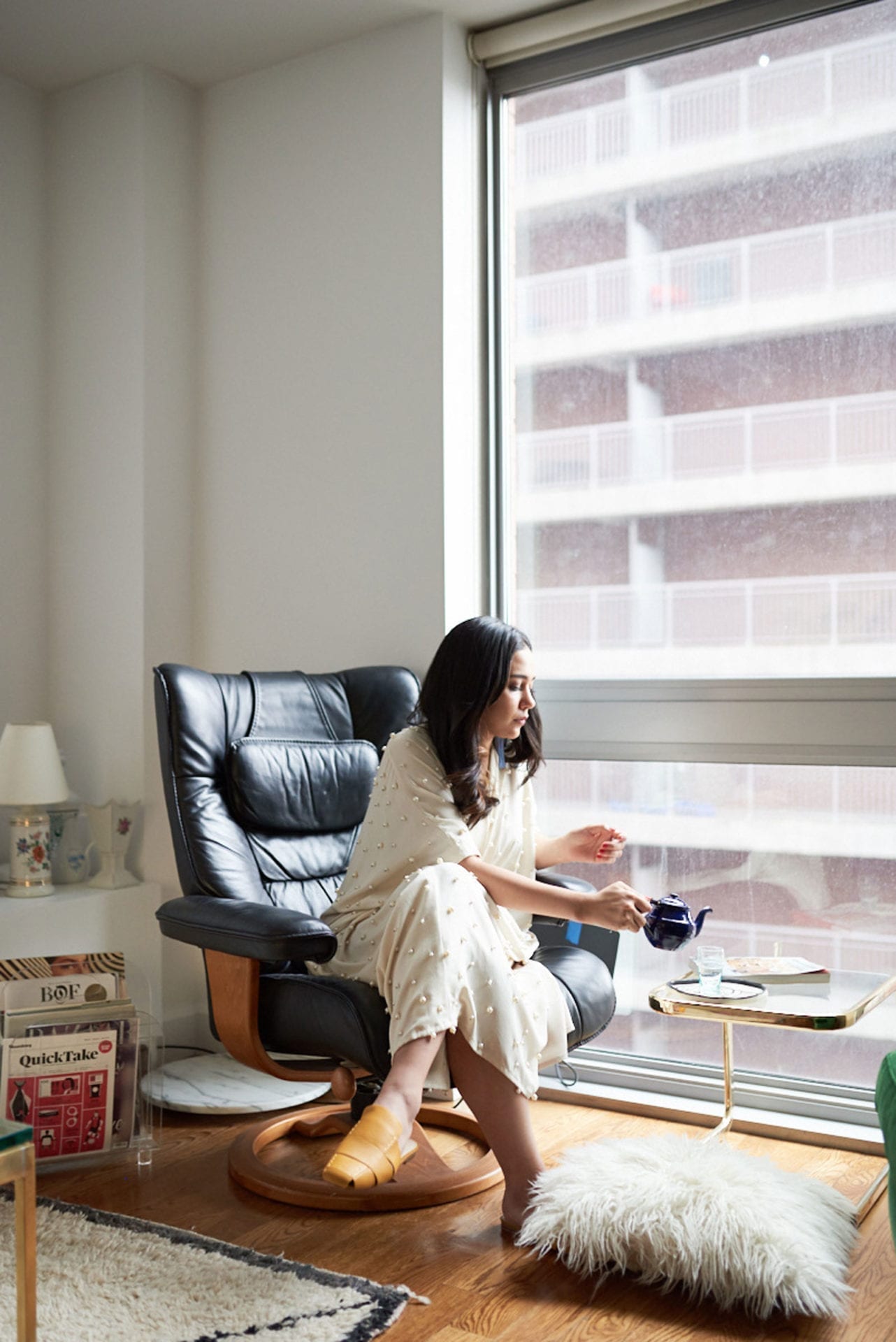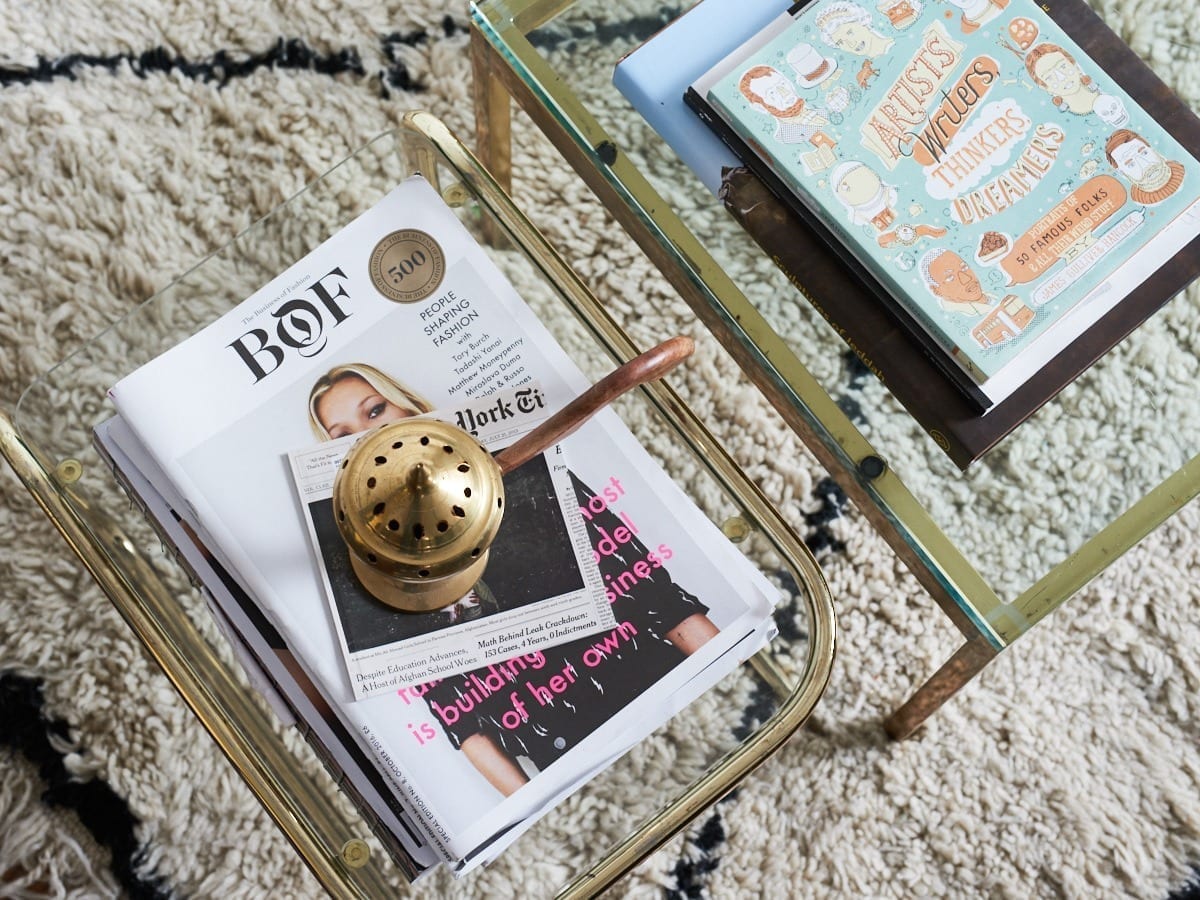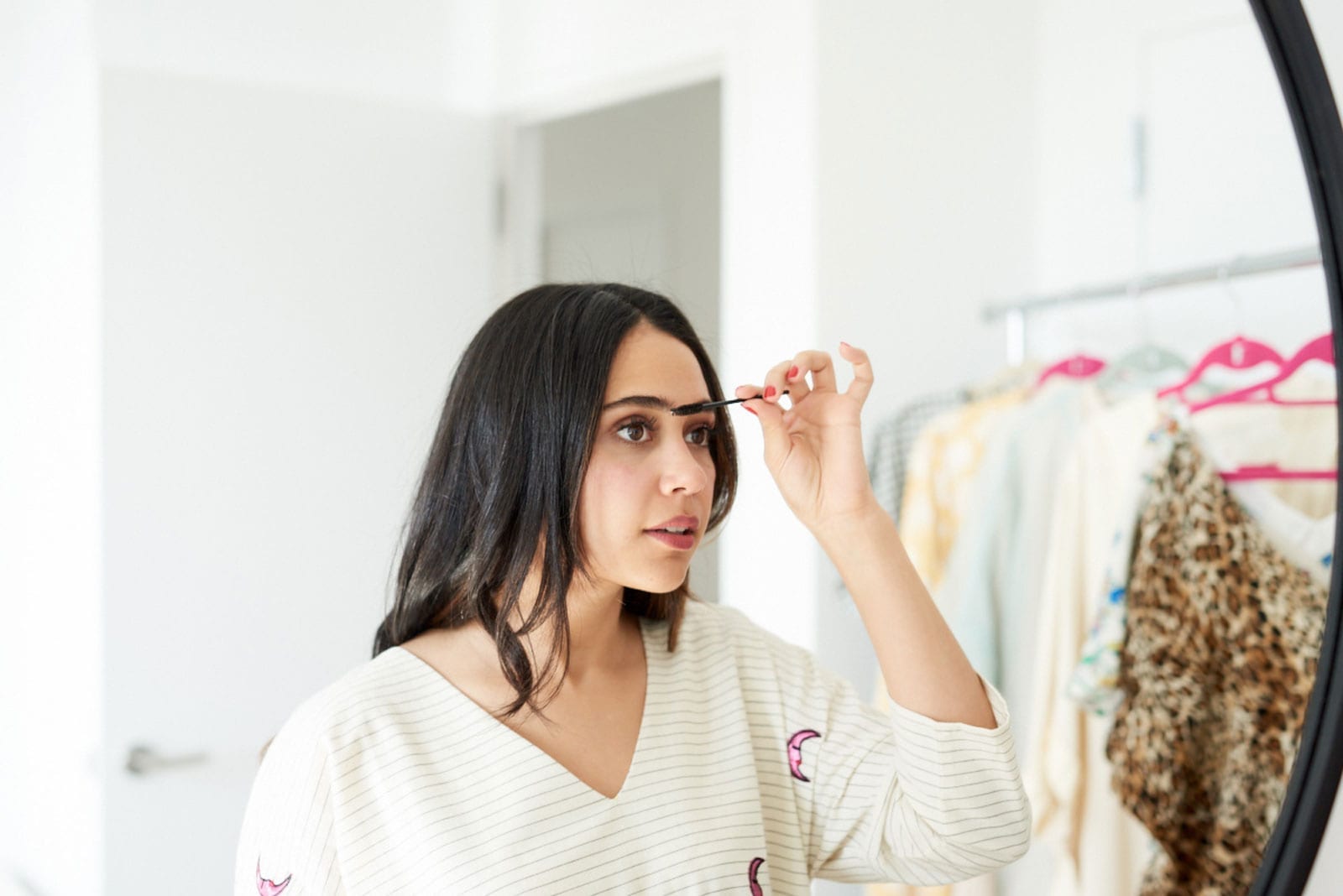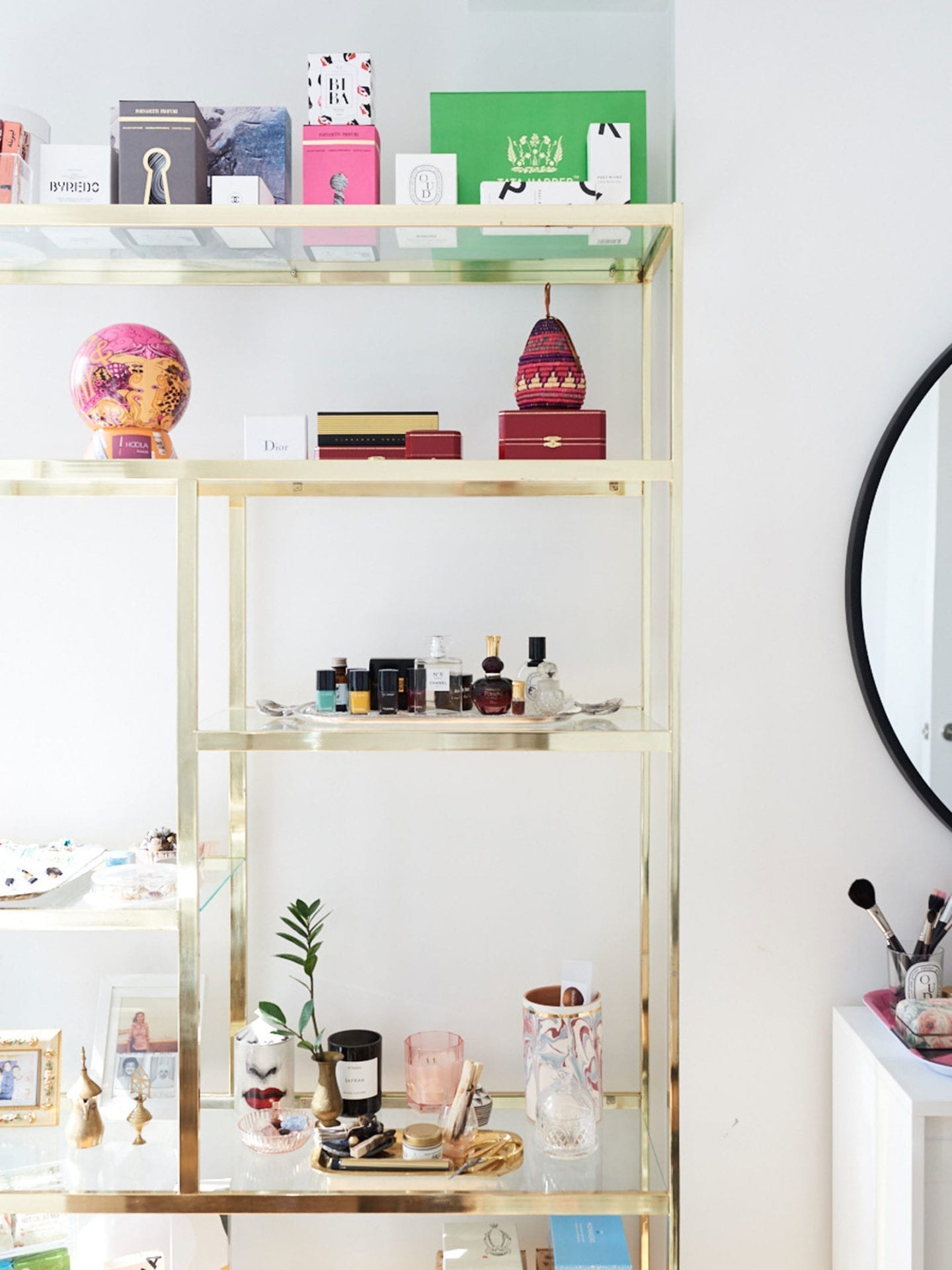Alaa Balkhy
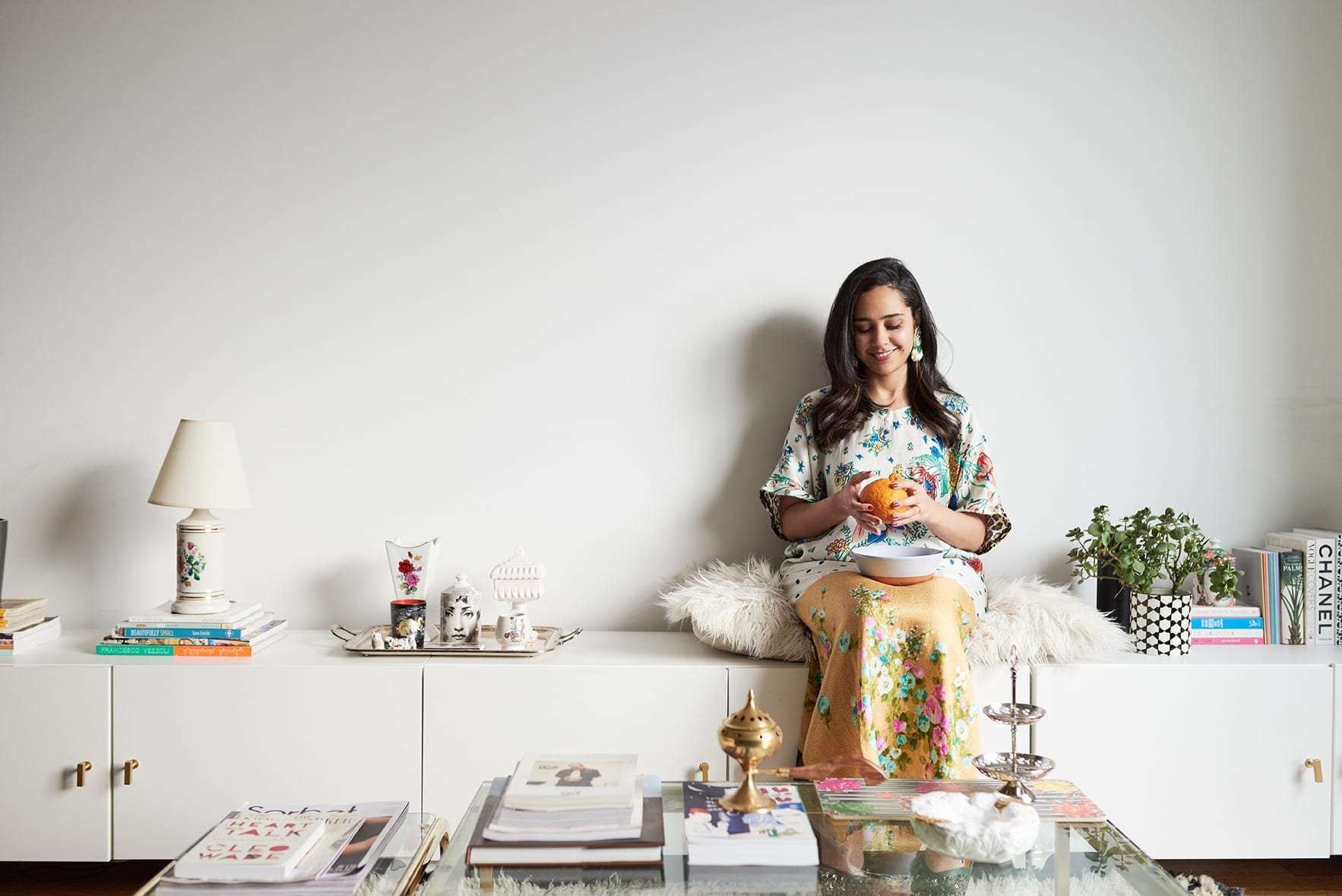
Alaa Balkhy is a story seeker. This gentle force of nature, always on the go, is a deeply artistic soul who saw success at a young age with her first brand, Fyunka. It wasn’t long before her cultural acumen propelled her to bring together the creative musings and projects of the Arab diaspora under the umbrella of her quarterly publication, Minaazine. As a quintessential woman of her generation, Alaa is be tackling many projects with an impressive ease, and each is her artful vessel to a message thoughtfully rooted in the Arab culture.
Alaa Balkhy is a story seeker. This gentle force of nature, always on the go, is a deeply artistic soul who saw success at a young age with her first brand, Fyunka. It wasn’t long before her cultural acumen propelled her to bring together the creative musings and projects of the Arab diaspora under the umbrella of her quarterly publication, Minaazine. As a quintessential woman of her generation, Alaa is be tackling many projects with an impressive ease, and each is her artful vessel to a message thoughtfully rooted in the Arab culture.
Where did the idea for MinaaZine come from?
The idea came because I’m from Saudi Arabia and I live in New York and often in conversation with people in both places [so] I found myself building this bridge where I was introducing people they might like but would never have come across because of geographical and cultural boundaries. So I thought, why can’t I create something that is for [both]. You can never stumble upon these people on Instagram because literally, it’s a different network. I want Minaazine to evolve organically, but also for it to be a database of creatives that connects people across their respective industries and facilitates collaboration between different disciplines. The first activation we did was a Ramadan Insta story take-over where we got 30 people from many different countries and each day we gave them the Minaazine Instagram account. One day we had a Turkish woman that lives in Germany, is married to a Pakistani and works at Twitter but also has an organic linen brand, produced in Pakistan. It’s an amazing story and she was able to capture it during her takeover. Ramadan is one month that everyone has the same schedule but with the daily takeovers, we were able to see so much diversity in the way each person observed the holiday. It was really exciting to watch and we are looking forward to doing it again this year.
What have you discovered, about the cultural and social state of the Arab world through working on your publication?
That we are all very similar to one another and that we all have different stories. It’s amazing when you meet people with different upbringing and you relate to them so much..and that is what we wanted to do with Minaazine…connect people to each other and have this conversation that we all go through the same things.
You left Canada when you were nine years old and moved back to Jeddah with your family. Language-wise, what was this transition like?
It was so interesting speaking English very well growing up in the 90 ’s, because English was not taught in public schools until 12th grade, so if you did speak English it was either because your mom was a foreigner or you went to private school. it was weird being in the middle. With my friends, everything spoken [or] written (like MSN) was in English and then with family, it was Arabic. It was cooler to speak English back then, I see this shifting. I think we’re just embracing the culture much more.
The statistics around the use of social media in Saudi Arabia are astounding. Does it truly have a great impact on social patterns?
Of course. In Saudi, there’s no public space. At least there was no public space in the past five years when social media began. People did not meet. You either hung out with longtime friends or family. I think social media created this public space online where people could talk and it didn’t feel wrong. Especially between the genders. When you meet someone now it’s more acceptable to say “Oh I met [them] on Twitter”, because it was the only place you would interact with the opposite sex. It’s not in school, it’s not in the doctor’s office, there was no public space.
How did this shift affect you on a personal and/or professional level?
I’m from Jeddah and never went to Riyadh or Khobar before social media. I went there because of Fyunka when it started because I met people [online]. You already know what they do, where they live and that’s part of the conversation when you meet someone [in real life] that is still generally not addressed in a first meeting. Culturally we are so private but if it’s already online it breaks the barriers of this privacy.
You gained success at a pretty early age from Fyunka. How did that happen?
I graduated as an illustrator and then started creating projects. There weren’t a lot of Saudi fashion brands in 2011 or maybe there were but we just didn’t know about them so when I created this brand it went crazy. All of a sudden it was everywhere. One of the first Saudi brands I worked for was Sotra. It was impossible to know about new brands in general because there was no platform to share. When Instagram started, there was so much support from people because they were so excited to be seeing something that was made in their country by a Saudi girl – it’s so much cooler.
Are you still working on the brand?
It started when I was 21 and then I moved [to New York]. I have gone through many obstacles to keep the brand alive and at the moment I am trying to restructure it. The brand touches on social issues which I feel strongly about. [One item] got confiscated at the airport which is interesting. Everything in the world is so universal but in Saudi we had to adapt it.
So there’s an element of being an activist?
For me there is but I’m always so safe when I say things. When I don’t like the way things are and I recognize issues in our country, I try to touch on them, carefully, in a way I hope will start a conversation without being too controversial.
Do you feel you have the same filter in New York as you do there?
Yes, I’m the same person. What I would say here is what I would say there.
To be honest I’m much more myself in Jeddah only because that’s where I grew and I think in Arabic so it’s always easier for me in Jeddah in terms of conversation.
Would you say that Arab culture made you more conscious of your delivery?
Definitely, and I see issues [here], the same issues I see there but I don’t relate to them as much as I relate to them there. When they talk about women’s equality and all of these things that are happening in the states, for me it’s as important to talk about but I also want to include the conversation back home.
What do you love most about your Saudi heritage and miss most when you are in New York now?
I love the culture and the Hejazi accent I would say. Also the sense of belonging. Hejazi heritage is a mix of so many other cultures and each person that I meet from my city has a different story. I miss that the most, the fact that I relate to so many things across the region because of what Hejazi is, a mixture of everything. For example… let’s talk about food in Jeddah… For lunch one day it’s Moroccan, one day it’s Egyptian, every day is a different part of the world… that is what Hejazi food is.
But isn’t it like that in New York?
Yes, but it is different… here you hyphenate “Cuban-American”, Egyptian American; it’s different there… people are just Hejazi. The word is so complex.
"I think in the beginning social media created this public space online where people could talk and it didn’t feel wrong."
